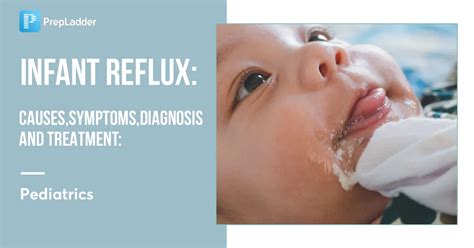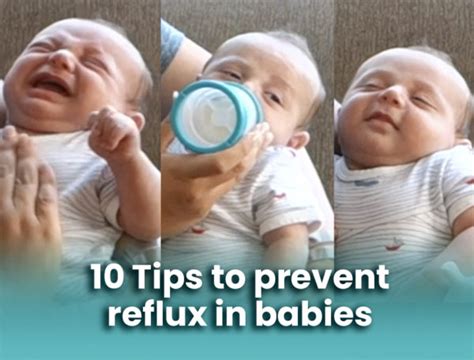Intro
Discover 7 expert tips to soothe infant reflux, including natural remedies, feeding adjustments, and lifestyle changes to alleviate acid reflux symptoms in babies, promoting healthy digestion and comfort.
Infant reflux, also known as gastroesophageal reflux, is a common condition that affects many babies. It occurs when stomach acid flows back up into the esophagus, causing discomfort, pain, and other symptoms. As a parent, it can be distressing to see your little one struggling with reflux, but there are many ways to manage and alleviate the symptoms. In this article, we will explore the importance of understanding infant reflux, its causes, symptoms, and most importantly, provide you with 7 valuable tips to help your baby feel better.
Infant reflux is a normal part of infancy, and it's estimated that up to 50% of babies experience some degree of reflux. The condition is usually caused by an immature digestive system, which can lead to stomach acid flowing back up into the esophagus. Other factors, such as premature birth, allergies, or sensitivities to certain foods, can also contribute to the development of reflux. As a parent, it's essential to recognize the signs and symptoms of reflux, which can include spitting up, vomiting, coughing, and fussiness after feeding.
Understanding the causes and symptoms of infant reflux is crucial in managing the condition. By recognizing the signs and symptoms, you can take steps to alleviate your baby's discomfort and prevent complications. In the following sections, we will delve deeper into the world of infant reflux, exploring the benefits, working mechanisms, and steps you can take to help your baby feel better. We will also discuss practical examples, statistical data, and provide you with a comprehensive guide to managing infant reflux.
What is Infant Reflux?

Symptoms of Infant Reflux
The symptoms of infant reflux can vary from baby to baby, but common signs include: * Spitting up or vomiting after feeding * Coughing or wheezing * Fussiness or irritability after feeding * Refusal to feed or difficulty feeding * Arching of the back during or after feeding * Frequent crying or colicCauses of Infant Reflux

Diagnosing Infant Reflux
Diagnosing infant reflux can be challenging, as the symptoms can be similar to those of other conditions. A healthcare professional will usually diagnose reflux based on a physical examination, medical history, and symptoms. In some cases, further testing, such as a pH probe or endoscopy, may be necessary to confirm the diagnosis.7 Tips for Managing Infant Reflux

Additional Tips for Managing Infant Reflux
In addition to the above tips, there are several other things you can do to help manage your baby's reflux: * Avoid smoking and second-hand smoke * Avoid exposure to strong smells and fumes * Keep your baby's room well-ventilated * Avoid tight clothing that can put pressure on the stomachConclusion and Next Steps

What is the most common cause of infant reflux?
+The most common cause of infant reflux is an immature digestive system, which can lead to stomach acid flowing back up into the esophagus.
How can I prevent infant reflux?
+While it's not possible to completely prevent infant reflux, you can reduce the risk by feeding smaller, more frequent meals, burping your baby regularly, and keeping your baby upright after feeding.
What are the symptoms of infant reflux?
+The symptoms of infant reflux can include spitting up or vomiting after feeding, coughing or wheezing, fussiness or irritability after feeding, refusal to feed or difficulty feeding, arching of the back during or after feeding, and frequent crying or colic.
How long does infant reflux last?
+Infant reflux usually resolves on its own by the time the baby is 12-18 months old. However, in some cases, it can persist into childhood.
Can I breastfeed if my baby has reflux?
+Yes, you can breastfeed if your baby has reflux. In fact, breastfeeding can help alleviate reflux symptoms. However, you may need to make some adjustments to your diet and feeding technique.
We hope this article has provided you with valuable information and tips on managing infant reflux. If you have any further questions or concerns, please don't hesitate to reach out to a healthcare professional. Remember to always prioritize your baby's health and well-being, and seek medical attention if symptoms persist or worsen over time. Share your experiences and tips with other parents in the comments below, and help us create a supportive community for families affected by infant reflux.
